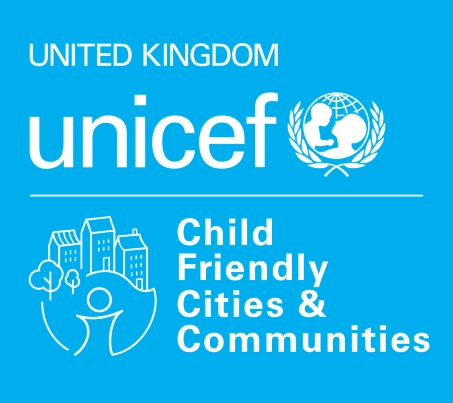
Councils get serious about children's right to play
Play is so central to children’s development that it is enshrined in the UN Convention on the Rights of the Child; equally important as a child’s right to health or protection.
Around the world and in the UK, children have seen their right to play seriously curtailed through lockdowns and restrictions. Caution tape wrapped around playgrounds has become a defining image of the pandemic.
As ever, play was seen as less important and received less airtime than the impact on other areas of children’s lives – school closures, online learning, etc. Yet the tide is turning, as the impact on children of a year spent mainly indoors and isolated from wider family and friends becomes clear.
A child rights-based approach to play
Across the country, councils taking part in the UK Committee for UNICEF (UNICEF UK) Child Friendly Cities & Communities programme are drawing on children’s rights to move play firmly up local authority agendas, so that no matter what lies ahead, no child ever experiences a childhood without play.
See examples below of what this looks like in practice and read how councils are working with children to reimagine outdoor play, especially in urban settings where play has traditionally been limited to a local park or playground.
In the London Borough of Redbridge, where the council is being supported by the Child Friendly Cities & Communities programme to reach thousands of children to hear what they want changed in their local area, play consistently tops the list.
This is as true for the borough’s youngest children as it is for older age groups, who frame play as “more things to do” or “places to go with friends”.
These young voices have filtered back to decision-makers, pushing play up the council’s agenda. Changes have been made so that all new play opportunities in the borough are now designed by their undisputed play experts: local children.
A recent high street redevelopment saw schoolchildren exploring and testing the areas designated for new play equipment before final plans were submitted. Once the locations were agreed, children were invited back to meet the contractors and give their views on the proposed play equipment. Shape and pinball play panels were scrapped, while talk tubes were added to the list.
Cardiff Council has a long running play street scheme, closing residential streets to traffic for a few hours a month to allow children to play close to home.
Yet with children suddenly restricted to the few streets around them during the pandemic, the council decided to take play streets one step further. Today they are supporting children to reclaim some of the city’s lanes – the narrow alleyways running along the back of rows of terraced houses, which have often been linked to anti-social behaviour and fly-tipping.
The council, Cardiff University and community group Grange Pavilion are working with children to repurpose these spaces into new green and safe spaces for outdoor play. The ideas are already flooding in; from “scootable” tarmac to vertical gardens.
‘Story Trails’ which encourage children and their families to follow stories using QR codes hidden across the city are also popping up in different areas of Cardiff – a simple way of transforming the city into an enormous urban play-space.
Recognising the immense impact of the pandemic on children and young people, Aberdeen City Council has taken a child rights-based approach to it’s 2021 Summer of Play.
Before a single paint pot was opened or stage set, the council ran a consultation to hear from local children about what they had missed doing most during lockdown. Over 700 children fed back that they wanted physical, outdoor activities. They did not want to have to engage through screens.
At the same time, work has gone into ensuring children who were impacted most by lockdown, including from low-income families, are first-in-line when choosing activities.
The final programme is the city’s largest yet, packed full of outdoor, accessible, free activities. A memorable summer for the city’s children after a year of disrupted play.


